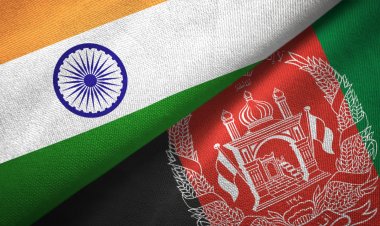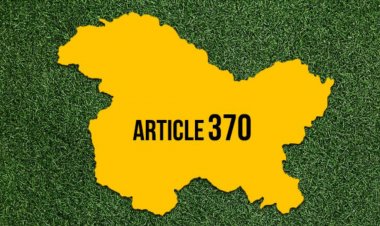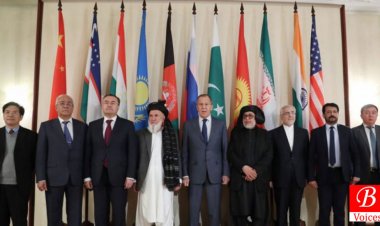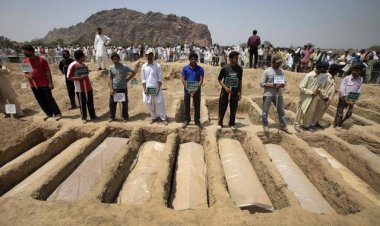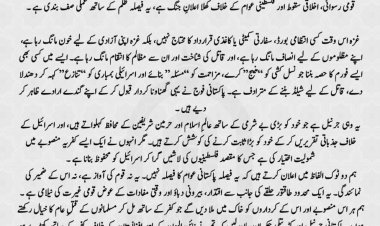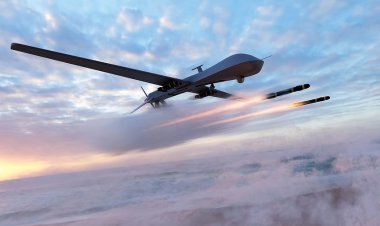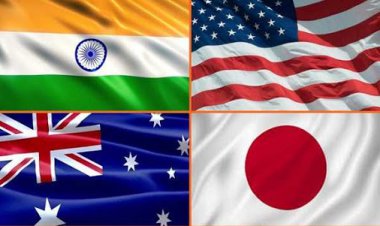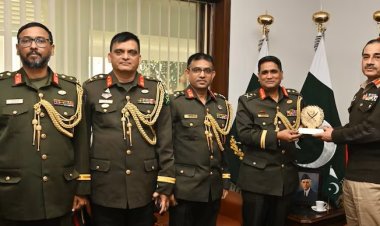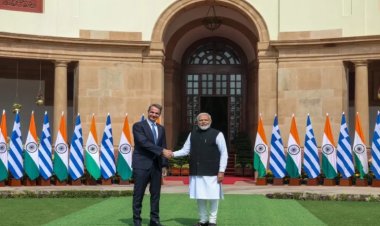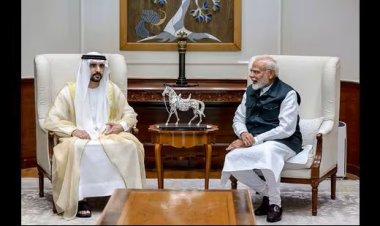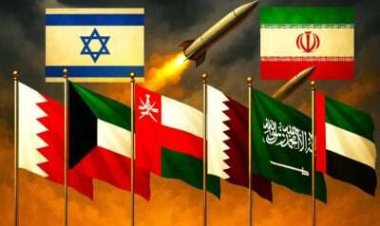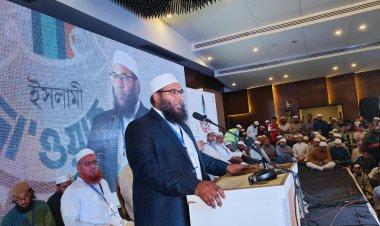Pakistan General Election 2024: A Prolonged Struggle for Stability
The article discusses Pakistan’s political landscape which is undergoing a change and the new coalition government’s litmus test for stable democracy. It also explains Pakistan’s history of fractured electoral processes backed by military rule resulting in the toppling of one regime after another.
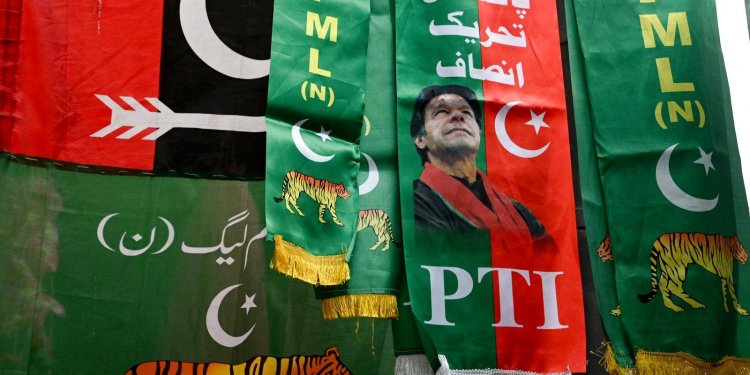
Commentary
By Ruchika Sharma
Pakistan's political scenario has been shaken by allegations of rigged elections and foul play. After the controversial elections on the 8th of February, two major political parties, Pakistan Muslim League-Nawaz (PML-N) and Pakistan Peoples Party (PPP), have finally come to a formal agreement to form a new government. The joint candidate for prime minister will be Shebhaz Sharif. However, it is still uncertain who will take up other key government positions. The head of Pakistan's Election Commission, Sikandar Sultan Raja, has been accused of failing to conduct the elections in a free and fair manner, and Prime Minister Imran Khan's PTI party has demanded his resignation. PTI alleges that the victories of many of its candidates were turned into defeats, but the elections oversight body denies these allegations.
The voting was held for a total of 265 seats in the Pakistan National Assembly. To become the next Prime Minister, a candidate needs to obtain a simple majority, which is equivalent to 169 votes in the National Assembly. Imran Khan's candidates won 93 seats in the elections, but it was not enough to form a government. Nawaz Sharif's party PML-N won 75 seats, which made it the largest single party, followed by the Pakistan People's Party (PPP) with 54 seats. The main contenders for the Prime Minister's position are the Pakistan Muslim League-Nawaz (PML-N), led by former PM Nawaz Sharif, the Pakistan Tehreek-e-Insaf (PTI), headed by Imran Khan, and the Pakistan People's Party (PPP), which promoted former Foreign Minister Bilawal Bhutto as their candidate for Prime Minister.
Amid the speculation of rigged elections, violence, the political history of coup-prone Pakistan is laden with turbulence- out of its 30 prime ministers, none have completed a full five-year term.
Approximately 12.85 crore voters, representing roughly half of the country's population of 24.1 crore, are eligible to cast their vote for a new National Assembly, the lower house of Parliament, and four provincial legislatures. As voting began for the national election mobile phone services were temporarily shut in Pakistan to strengthen security stated the interior ministry.
Amidst the backdrop of the imprisonment of Imran Khan, who emerged as a winner in the previous national election, this will lead to the formation of a new government for the next five years. 44 political parties are contesting the general elections. On October 21, 2023, Nawaz Sharif, the former Prime Minister of Pakistan, came back to the country after residing in self-imposed exile abroad for four years to avoid imprisonment on corruption charges. Upon his return, his convictions and sentences were annulled following an appeal.
Despite Imran Khan being in prison and his party being banned from contesting the polls, independent candidates backed by the PTI are fielded in the race after the Supreme Court upheld the Election Commission of Pakistan's decision to strip party’s iconic election symbol, the cricket 'bat'.
Former jailed Prime Minister Imran Khan is absent from the political ballot due to criminal convictions rendering him ineligible to contest in elections. He faces sentences totaling 34 years and several legal cases. The elections hold significance as they mark the first instance in Pakistan's history where the popularity of a civilian leader, Imran Khan, has posed a challenge to the traditional dominance of the army.
In the elections an iron handed Pakistan's military wields strong influence behind the scenes. The Pakistani military has a long tradition of indirectly exercising power, controlling key domestic policies, levering power to control, influence government and institutions, controlling, and disseminating propaganda emphasizing army as the paramount guardian of Pakistan's territorial and ideological integrity. However, Pakistan’s foreign ministry announced the presence of 92 international election observers, which includes representatives from the European Union and various foreign embassies. The military exerts its influence over Pakistan's political landscape, with generals having governed the country for almost half of its history. Politicians and political parties often rise, and fall backed by the support of the military, with this year's speculation suggesting that the military is backing the party of three-time former prime minister Nawaz Sharif[1]. The army picked Imran Khan was also a beneficiary in the 2018 elections.
In the general elections, chief of army staff general (COAS) Syed Asim Munir is also drawing significant attention alongside the competing political parties and their candidates. The potential involvement of the military cannot be dismissed in the electoral process. Throughout Pakistan's history spanning 76 years, elected governments have experienced removal through military intervention, including three coups or indirect pressure from generals. Notably, no prime minister has successfully completed a full five-year term in office. When Imran Khan was removed from power following a disagreement over military leadership, he blamed the generals behind his ousting. Addressing large crowds at rallies, Imran Khan openly criticized these generals by name, which was previously uncommon in a country where people typically expressed grievances indirectly, using terms like ‘the establishment’ to refer to the military.
Pakistan inaugurated a caretaker cabinet led by interim Prime Minister Anwaar-ul-Haq Kakar last year, charged with governing the country until new elections. The primary objective of the interim cabinet was to guide debt ridden Pakistan towards economic stability. Notably, former central bank chief Shamshad Akhtar was appointed as finance minister, while Jalil Abbas Jilani, Pakistan's former ambassador to the United States, was named foreign minister, and Murtaza Solangi as the new informationminister.
Pakistan is plagued with a myriad of issues. Along with political turbulence the coup-prone country is a breeding ground and a haven for the non-state actors. According to media reports, at least 30 people lost their lives, and 40 others were injured in twin blasts targeting election offices in Pakistan’s Balochistan province a day before the general elections. As per the local media reports, the powerful magnitude of the blast jolted the election office of a JUI candidate in the Killa Abdullah region. Balochistan, which shares borders with Afghanistan and Iran, has witnessed heightened violence, in the lead-up to Pakistan's general elections on February 8. Banned separatist organizations in Balochistan are carrying out attacks on the security forces, infrastructure, and government personnel across the province. They assert they are waging a campaign to reclaim local rights and to cease alleged government and security forces' control over the province's valuable mineral resources. In another incident on 6 February security posts, election campaign offices and rallies in different areas of the province were targeted.
Hafiz Saeed, the chief of LeT, has put forward his candidates for the general elections, aiming to establish Pakistan as an Islamic welfare state. The Pakistan Markazi Muslim League (PMML), founded by the mastermind behind the 26/11 Mumbai terror attacks, presents itself as a political party, with the ‘Chair’ as its party’s symbol. PMML President Khalid Masood Sindhu is running for NA-130 Lahore, where former Prime Minister Nawaz Sharif is also contesting. Saeed's son, Talha Saeed, is a candidate for NA-127 in Lahore. The PMML emerged after the ban on the Milli Muslim League (MML) in 2018, the political arm of JuD. Despite fielding candidates, MML failed to secure any seats, especially in Punjab. Hafiz Saeed, designated as a UN terrorist, carries a USD 10 million bounty by the US. The Jamat-ud-Dawa, led by Saeed, serves as a front for LeT, responsible for the 2008 Mumbai attacks.
The unfolding election results in Pakistan have intensified the political crisis within the country, impacting civil-military relations, democratic prospects, internal economic woes, and external relations with India and the global community. For India, the outcome suggests a status quo, potentially limiting Pakistan's capacity for eastern front adventurism amid internal distractions. Nawaz Sharif's potential return to power could hint at attempts to improve relations with neighboring countries with its neighbor India. However, bilateral ties between Pakistan and India, stalled over the Kashmir issue, remain strained, although analysts anticipate a possibility for reconciliation under Sharif's leadership. Despite expectations for a potential meeting between Bilawal Bhutto and Indian counterpart S. Jaishankar, both sides refrained, opting instead for critical rhetoric in their official speeches. Pakistan continued safeguarding and support of terrorism remains at the center for India posing a severe threat on the national security front.
Nawaz Sharif has shown a willingness to engage with India and has recognized its global progress. However, his party's manifesto states a readiness to make peace with India only if New Delhi reverses its decision to revoke Article 370, which granted special status to Jammu and Kashmir.
Disclaimer: This paper is the author's individual scholastic contribution and does not necessarily reflect the organization's viewpoint.
Ruchika Sharma is pursuing MA in Diplomacy Law and Business from O.P Jindal Global University. She is interested in the evolving dynamics in the world of international politics.

